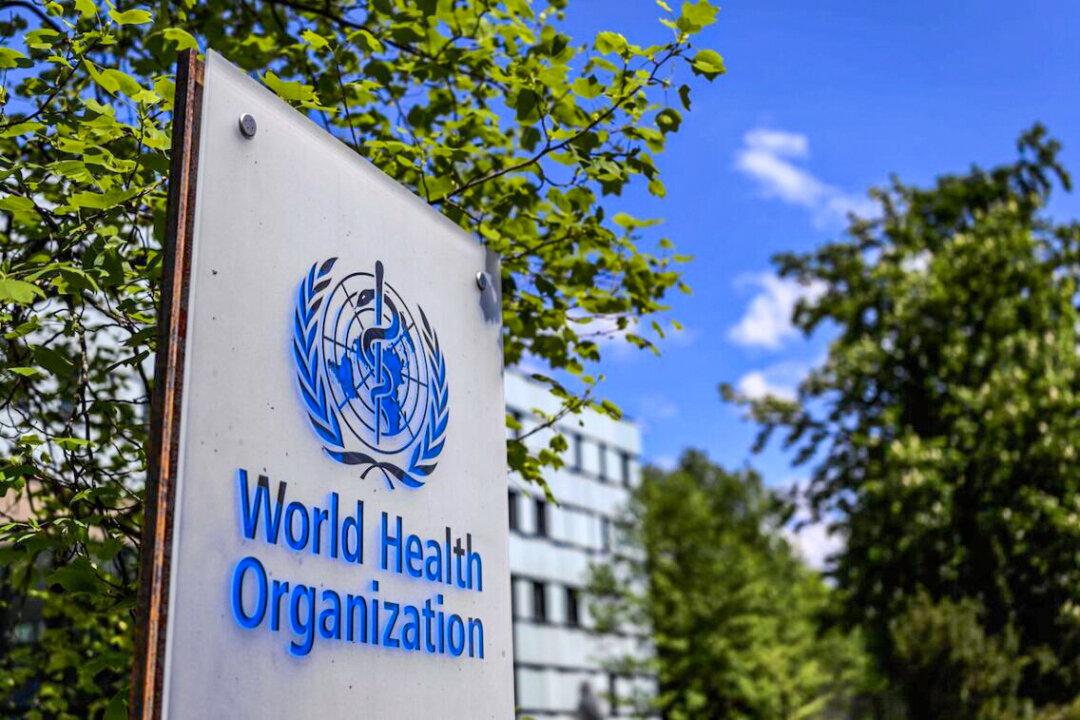Commentary
Sugar, of all things, may not seem a very apt symbol of liberty under siege, but who imagined what another commodity, tea, would come to mean to the American colonists in 1773?
We read in grammar school how the Sons of Liberty dressed as Indians and hid themselves on board three ships carrying tea from the British East India Company, proceeding to dump the precious cargo into Boston Harbor to prevent the British Parliament from imposing taxation without representation.
The day after, John Adams would write: “This destruction of the tea is so bold, so daring, so firm, intrepid and inflexible, and it must have so important consequences, and so lasting, that I can’t but consider it as an epoch in history.”
One can live without tea (if you call that living, to quote Groucho Marx on another subject), and the World Health Organization (WHO) assures us that one can live without sugar. But do we want our rulers taking it away from us? The ever-more-extreme politicians of California, after scheduling the total ban of gas-powered cars by 2035, are now shifting their aim from the driver’s seat to the cup holder, contemplating a ban on sugary beverages, sweets, and even certain kinds of bread.
One state representative has proposed a bill that would ban in their current form certain types of sliced wheat bread, flour and corn tortillas, sugar cookies, cinnamon rolls, cakes that aid in slimming marketed by Weight Watchers, plus candies and other treats like Jelly Bellys, Fanta soda, Kool-Aid, Mountain Dew, Nerds, Nesquik, Oreos, Peeps, Pop Tarts, Rice Krispies cereal, Skittles, Swedish Fish—nearly 3,000 products in all. It does this by going after a series of nasty-sounding ingredients, like brominated vegetable oil, potassium bromate, propylparaben, red dye 3, and titanium dioxide.
This is an overdose of déjà vu. In 2012, Mike Bloomberg, then the Republican mayor of New York City, illegally tried to forbid New Yorkers from enjoying Big Gulps, or any soda exceeding 16 ounces, in restaurants, movie houses, ballparks, and from street carts. In 2019, the Food and Drug Administration finalized its total ban on trans-fatty acids in foods, aided in full by the American Medical Association, for whom trans-fat is public enemy number one—yet it soft-pedals the dangers of marijuana amid its expanding legalization despite the evidence that weed can become a gateway to harder drugs, such as heroin and other substances.
These multisyllabic menaces found in the fine print on the back labels of items are not very healthy, it’s true. But neither is sugar. “If governments tax products like sugary drinks, they can reduce suffering and save lives,” declares the WHO. “They can also cut health care costs and increase revenues to invest in health services.”
We can bemoan all we like about the food industry feeding us slow poison, but the industrialization over the years, of which food companies have been instrumental, has massively enhanced longevity in the world. “The evidence is particularly strong that the trends in food production and nutrition are benign despite rising population,” economist Julian Simon pointed out. “The long‐run price of food is down sharply, even relative to consumer products, as a result of increased productivity.” In other words, we owe a debt of gratitude to the food industry for its innovative production methods over the course of many decades.
Today, Uncle Sam is coming for chemicals most of us have never heard of; tomorrow, it will be sugar, ice cream, birthday cake. This is what it is vital to understand: elected politicians seeking the glory of their constituents and a permanent perch of power have an ultimate objective of control over people’s lives. Bashing even a left-wing business titan and Democratic Party ally like Facebook founder Mark Zuckerberg, Rep. Alexandria Ocasio-Cortez (D-N.Y.) demands “publicly owned systems” to replace private industry.
Bloomberg downplayed his war on sugar, claiming, “We’re not banning you from getting the stuff. It’s just if you want 32 ounces, the restaurant has to serve it in two glasses. That’s not exactly taking away your freedoms. It’s not something the Founding Fathers fought for.” At the time, one New York City professional interviewed by NBC countered, “I consider myself to be fit and healthy, and I love large sodas!” as he claimed to drink at least one 16-ounce soda per day, usually a Pepsi. “I go to the gym daily and run. I’m not fat. I think this proposed ban is a huge infringement on my rights. I always get the large soda at the movies and drink what I like.”
Shakespeare’s mischievous though beloved Sir John Falstaff put it this way: “If sack [i.e., wine] and sugar be a fault, God help the wicked! … if to be fat be to be hated, then Pharaoh’s lean kine are to be loved … banish plump Jack, and banish all the world!”
All the world indulges in unhealthy food; it is one of the joys of life. Those who know what’s good for them moderate the practice. The question is whether those we place in power should be dictating our menus.





